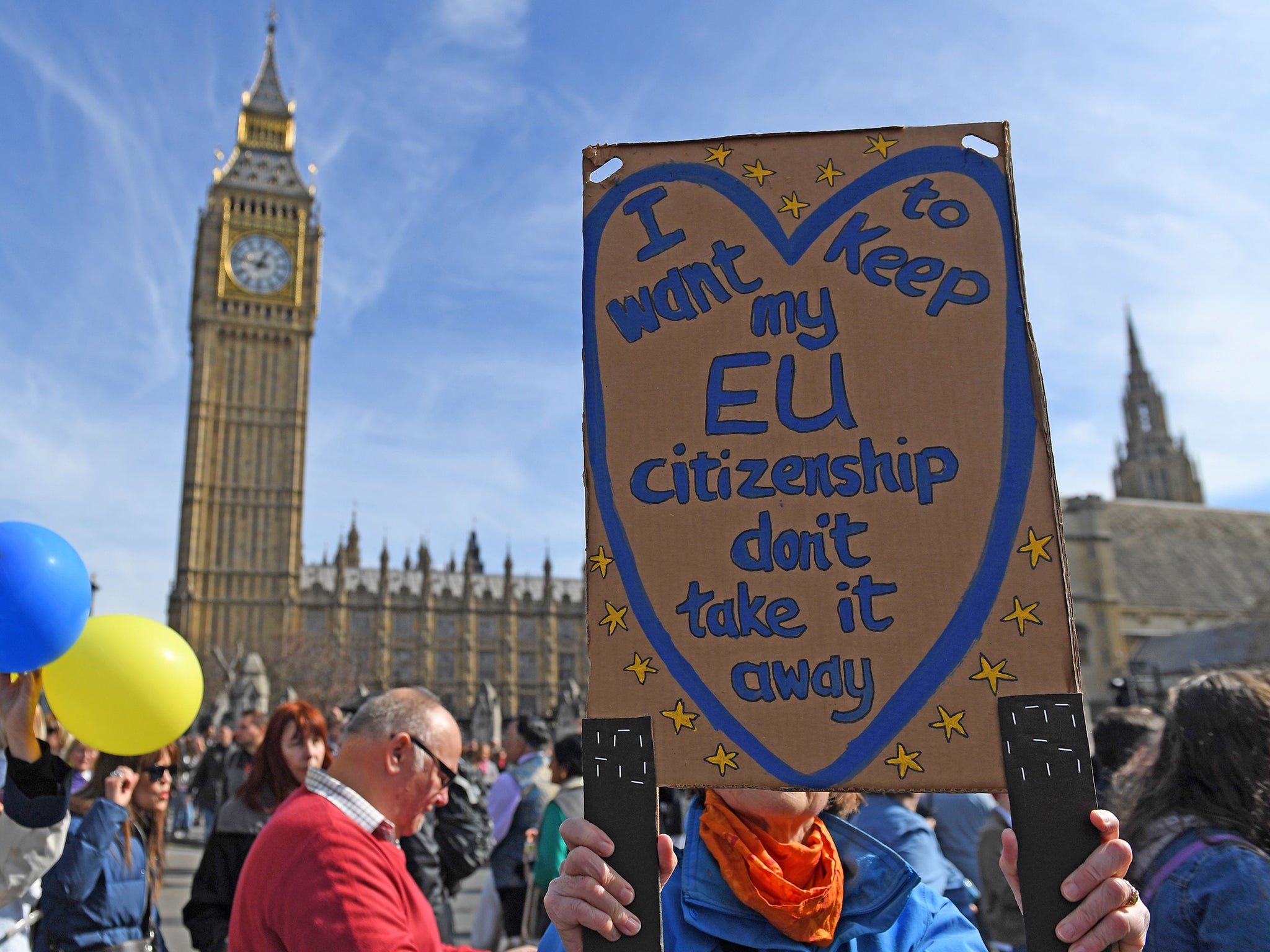Brexit: Government must ring fence any agreement on citizens’ rights even if negotiations collapse, MPs demand
MPs on the influential Brexit committee also warn that a border between Northern Ireland and the Republic appears inevitable after Brexit

Any agreement reached on citizens’ rights in the Brexit negotiations must be ring-fenced even if the talks collapse and no deal is agreed between the UK and EU, a new Commons report has demanded.
In a report before the crucial European Council meeting – where it will be decided next month whether the Brexit negotiations can pass to the next phase – MPs on the influential Brexit committee also warned that a border between Northern Ireland and the Republic appeared inevitable after Brexit.
The report by the committee, chaired by the Labour MP Hillary Benn, said: “We call on the Government to request, and the EU to agree, that any agreement reached on citizens’ rights should be ring-fenced when reached, and persevered even if no overall Article 50 deal is reached.”
The MPs on the Brexit committee added that if the EU negotiating team rejected such a request, then Downing Street should “make a declaration that it will unilaterally provide an agreement on EU citizens’ rights in the UK” to provide reassurances to the more than three million EU citizens living in Britain.
“In these circumstances, we would expect the EU to issue a similar guarantee to UK citizens living in EU countries,” they add.
The call comes after the latest figures from the Office of National Statistics (ONS) showed that net migration to the UK had plummeted by more than 100,000 in the year since the vote for Brexit. The number of people moving to living in Britain long-term had fallen 230,000 in the year to June, with three quarters of the drop accounted for by EU citizens.
The issue of citizens’ rights is one of three key sticking points in the talks between British and EU negotiators, alongside avoiding a hard border between the Irish Republic and Northern Ireland and the financial settlement – often referred to as the divorce bill.
Despite reports of a breakthrough on the issue of the Irish border, the report added that MPs do not believe it is possible to reconcile there being no border in Ireland if the Government sticks to its policy of leaving the single market and customs union.
“The Government’s proposals are untested and speculative, so it has yet to set out how no border can in practice be maintained with the UK outside the single market and customs union,” Mr Benn said.
But the report split the committee with four of the eight Conservatives present as well as the lone Democratic Unionist voting to reject it.
The findings echo the concerns of the Irish government which has demanded a written guarantee from the UK that there will be no return to the “hard border” of the past as a result of Brexit.
Brexit: the deciders
Show all 8Premier Leo Varadkar has warned that without such an assurance, EU leaders will not give the green light for the second phase of the Brexit negotiations, including talks on a free trade deal, to begin at their summit on December 14 and 15.
One the four Tory Brexiteers who voted against the report, Craig Mackinlay rejected the suggestion that leaving the single market and the customs union would mean bringing back a “physical border infrastructure” between the North and the Republic.
“Of course, there has long been a VAT and currency border. Goods and services entailing cross-border transactions have paperwork and electronic filing to efficiently and effectively handle the different tax regimes,” he said.
“If we end up with the World Trade Organisation model, for instance, I see no reason why it is not possible to add a customs tariff, if necessary under a no deal scenario.
Subscribe to Independent Premium to bookmark this article
Want to bookmark your favourite articles and stories to read or reference later? Start your Independent Premium subscription today.

Join our commenting forum
Join thought-provoking conversations, follow other Independent readers and see their replies